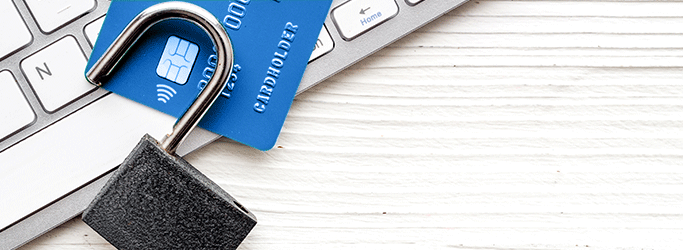How to prevent credit card fraud

Ever since the pandemic, more Filipinos have turned to online and cashless transactions. In turn, credit card fraud cases in the country also increased.
According to the Credit Card Association of the Philippines (CCAP), fraudulent credit card activities surged by 29% since the COVID-induced lockdowns.
Yes, credit card fraud happens, but don't let it happen to you.
In this article, we will tackle credit card fraud detection and how to prevent credit card fraud.
Protecting your information
Your personal information can become a scammer's treasure. Fraudsters can easily use your personal information to steal your identity and use it to apply for various loans and financial products or takeover your account. Often, learning how to prevent credit card fraud is as simple as protecting your personal information, especially in social media.
If you feel that you have been a victim of identity theft, notify your bank immediately. Head to the nearest branch and close any questionable accounts under your name. Credit card fraud detection and prevention are easier to manage and handle when they're done as soon as possible.
Protecting your card
The most common types of credit card fraud today are credit card skimming and lost or stolen cards. Both involve physical access to your card.
Card skimming involves stealing credit card imprints electronically with a device that collects data from a debit or credit card's magnetic strip. Thieves often install the device on ATM card slots or credit card terminals so they can clone your credit card.
How do you identify credit card fraud via skimming? Keep track of your purchases. If you've noticed that your transaction history includes transactions you didn't make, contact your bank immediately.
Moving forward, make sure you enable SMS notifications so you get notified each time a purchase is made using your credit card.
If you've recently lost your card or it was stolen from you, have it blocked right away. Request for a card replacement and file a dispute for any unauthorized transactions.
Securing your card information
Card-Not-Present (CNP) fraud is the major reason you should keep your credit card details private. This type of credit card scam often happens through online or mobile payments, when cards are not physically present during a fraudulent transaction. If somebody gets hold of your credit card number, expiry date, and CVV2/CVC2 (The last 3 digits at the back of your credit card) they can easily commit CNP fraud against you.
To prevent this type of credit card fraud, don't fall for phishing scams that ask for your credit card information through emails, phone calls, or malicious websites. Fraudsters would normally ask for any of the following information - credit card number, expiry date, CVV2/CVC2, or the one-time-password (OTP) sent to your mobile number. Do not divulge any of these information, especially your OTP to any unknown sites or callers. Banks will not ask for your OTP except during the time you use your card for your transactions.
Authentication is normally done via one-time-password (OTP). Do not divulge your OTP to any unknown sites or callers. Banks will not ask for your OTP except during the time you use your card for transactions.
If you become a victim of CNP fraud, contact your bank immediately to block the affected debit or credit card. Change the log-in credentials of your online banking account and monitor for any unauthorized transactions.
Choosing a card with fraud detection and prevention features
Today, banks do not only offer credit card fraud detection, but also credit cards that proactively prevent fraud from occurring.
These are just some of the ways credit cards prevent fraud:
- EMV technology. This has become the global standard for debit and credit card payments, playing a big part in reducing card fraud.
- One-time password (OTP). It requires authentication of online transactions before payments go through. A unique OTP will be sent to you via SMS to complete online payments.
- Transaction verification via SMS. It sends text messages to your phone if a suspicious transaction is flagged on your credit card. The SMS typically includes the amount of purchase, date and time, and your card's last four digits. The sender should be the official name of your bank, such as “Metrobank” for your bank accounts or “MCC” for your Metrobank credit cards.
Most banks in the country have rolled out these security features in the past years, including Metrobank. For safety measures, you should also update your debit or credit card to ensure it has all the additional layers of security needed today.
Despite trends in fraud, credit cards remain as one of the more secure transaction methods. This is because credit card companies employ many security features to protect users. Credit card detection and prevention measures are also in place to ensure customers can proceed with transactions safely. Make sure your contact numbers and emails are updated.
At Metrobank, we're determined to stop fraudsters and protect customers from fraud. For more information on this topic, click here for the best tips on defending and fighting online fraud.
More Smart Reads